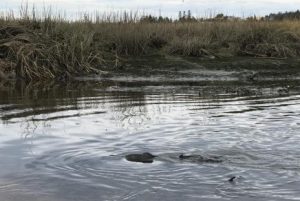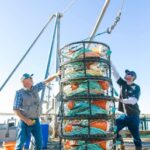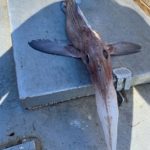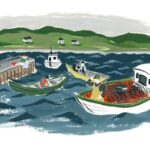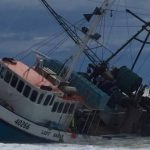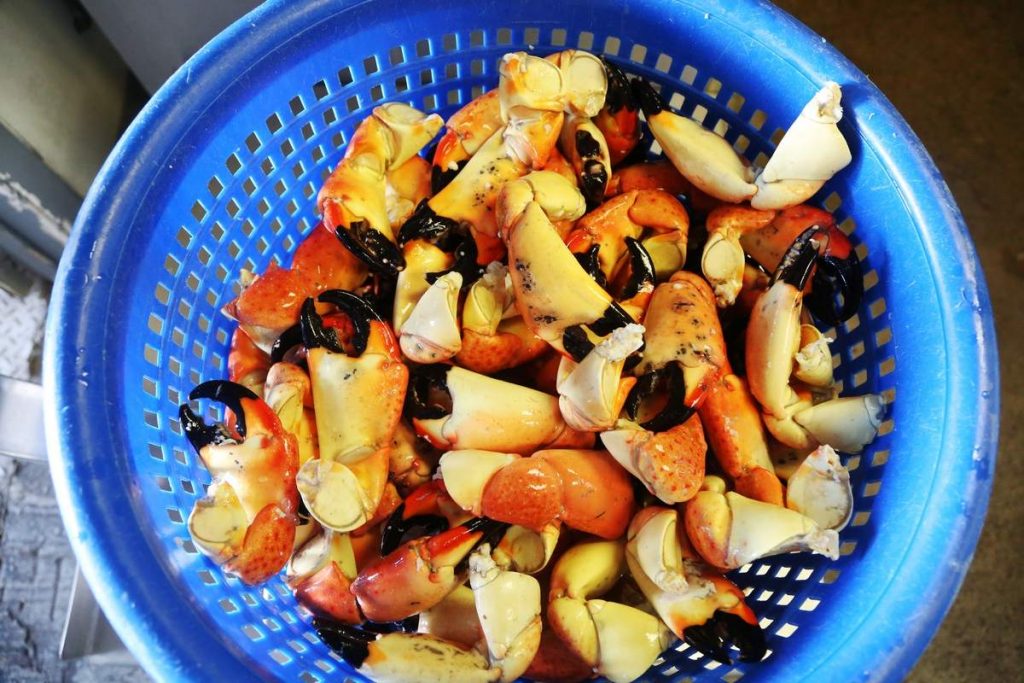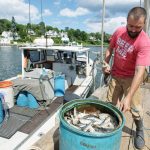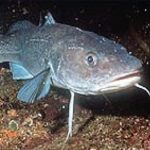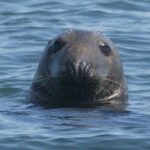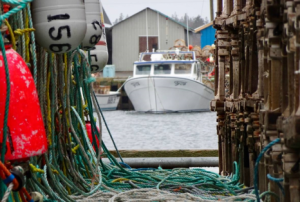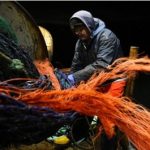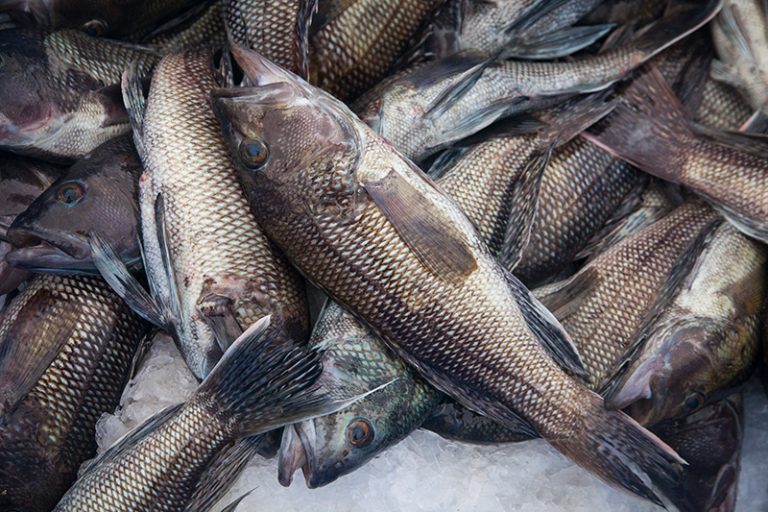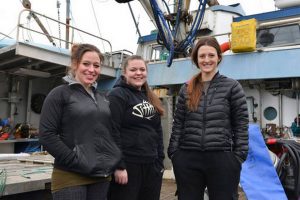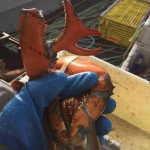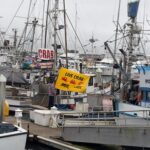Tag Archives: Oregon Sea Grant
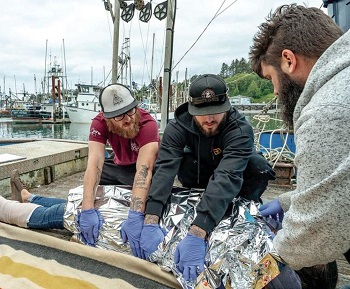
Fishermen first aid and safety training coming to Charleston
Commercial fishing is a dangerous and challenging occupation. Everyone wants to be safe, but the risk of injury is always there. With this in mind, a team from Oregon State University and Oregon Sea Grant developed Fishermen First Aid and Safety Training, designed around the principles of wilderness first aid to better enable fishermen to prevent and treat injuries they are likely to encounter at sea. This year OSU is partnering with the Charleston Fishing Families to host FFAST August 29 and 30 from 8:30 a.m. to 5 p.m. at their office near the Charleston Marina. >click to read, with additional links< 14:33
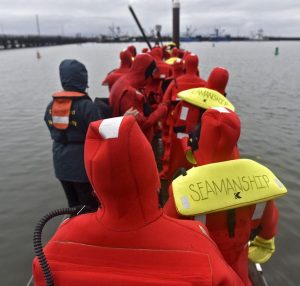
Letter: Celebrate efforts to make commercial fishing safer
I appreciated seeing Colin Murphey’s photography feature showing our local commercial fishing crews engaged in safety training on Nov. 30 (“Fishing — the Most Dangerous Game,” The Daily Astorian) >click to read<. However, the headline struck me as somewhat inappropriate for the content. The Coast Guard holds a drill conductor training here in Astoria three to four times a year, and Oregon Sea Grant helps get fishermen signed up. Amanda Gladics >click to read<08:49
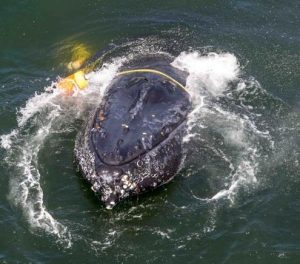
West Coast Whale entanglement data collected
Whale entanglements off the West Coast and potential solutions to the escalating problem are the focus of a new report including the presentations and observations of fishermen, biologists, and fisheries managers who gathered at an August workshop on the subject.,, The report provides the notes and presentations from the 31 California, Oregon, and Washington experts who attended. Participating were Dungeness crab fishermen; gear specialists; marine mammal biologists and disentanglement specialists; conservation groups; and federal, tribal, and state agency representatives.,, Participants also expressed interest in a gear innovation developed by fishermen in the lobster fishery on the East Coast. >click to read<08:33
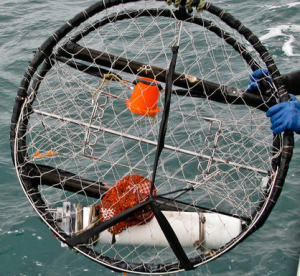
Study to help prevent whale entanglements off Oregon
COOS BAY, Ore. (AP) — Crab Commission is supporting a multi-year study to prevent whale entanglements off the Oregon Coast The Coos Bay World reports that the board of the industry-funded agency approved nearly $45,000 toward the three-year $300,000 project. The U.S. Coast Guard, Oregon Sea Grant, Oregon Department of Fish and Wildlife and Oregon State University Marine Mammal Institute plan to gather data on whale distributions and populations. .’>click to read<12:50
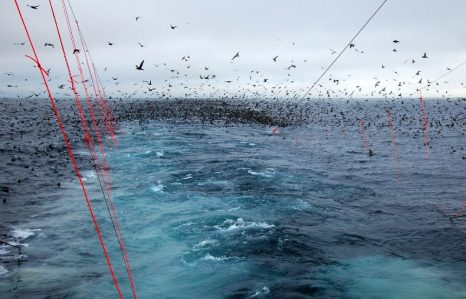
Collaborative project between researchers, fishermen aims to reduce West Coast seabird bycatch
A collaborative project between researchers and the West Coast sablefish fishing industry is showing promise for reducing the number of seabirds caught in longline fishing gear, in particular several albatross species including one threatened with extinction. The combination of using streamer lines (also called bird-scaring lines) to protect longline fishing gear from seabird attacks on baits, and setting hooks at night when the birds are less active can significantly reduce seabird mortality, the researchers say. click here to read the story 12:39
Women in Oregon fishing industry have important, but sometimes invisible role
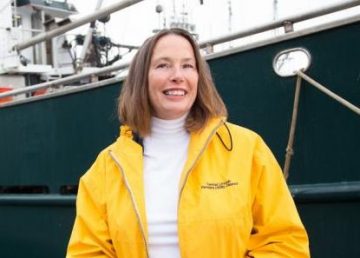 Women have always played an important role in Oregon’s commercial fishing industry, even if they don’t actually fish or work on boats – but a new study indicates their roles are changing. The research, funded by Oregon Sea Grant and published in the journal Marine Policy, was based on a series of oral-history interviews conducted mainly with fishermen and their wives. The findings could help government agencies set policies that take into account their potential impacts on the well-being of entire fishing communities, said Flaxen Conway, a community outreach specialist with Oregon Sea Grant Extension and a co-author of the paper. Continue reading the article here 08:35
Women have always played an important role in Oregon’s commercial fishing industry, even if they don’t actually fish or work on boats – but a new study indicates their roles are changing. The research, funded by Oregon Sea Grant and published in the journal Marine Policy, was based on a series of oral-history interviews conducted mainly with fishermen and their wives. The findings could help government agencies set policies that take into account their potential impacts on the well-being of entire fishing communities, said Flaxen Conway, a community outreach specialist with Oregon Sea Grant Extension and a co-author of the paper. Continue reading the article here 08:35
Scientists present evidence of correlation between migration patterns of salmon and magnetic field
 A team of scientists last year presented evidence of a correlation between the migration patterns of ocean salmon and the Earth’s magnetic field, suggesting it may help explain how the fish can navigate across thousands of miles of water to find their river of origin. Read [email protected] 10:56
A team of scientists last year presented evidence of a correlation between the migration patterns of ocean salmon and the Earth’s magnetic field, suggesting it may help explain how the fish can navigate across thousands of miles of water to find their river of origin. Read [email protected] 10:56



































